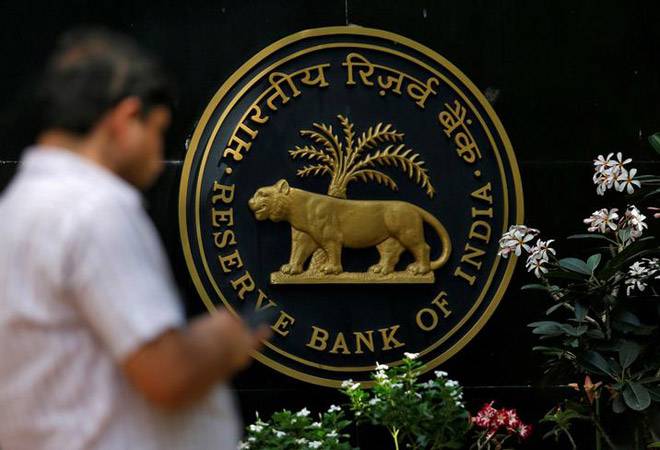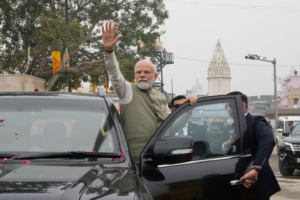Gaurav Vivek Bhatnagar
The Reserve Bank of India’s (RBI’s) repeated warnings on the electoral bond scheme in bearer form having the potential to increase black money circulation, money laundering, cross-border counterfeiting and forgery were ignored by the Centre as it was more keen on protecting the identity of donors, the Ministry of Finance’s responses to right to information queries has revealed.
In response to applications around the electoral bond scheme filed by RTI activist Anjali Bhardwaj, the ministry has released the correspondence between the RBI and the Centre. These clearly show how the Centre went ahead with a “bearer” electoral bond scheme, as announced in the Union Budget 2017-18, regardless of the concerns raised.
While HuffPost India broke the story of how the RBI objected to the electoral bonds scheme earlier this week, documents provided by Bhardwaj give further details on the back-and-forth that took place.
RBI: Electoral bonds will promote money laundering
A look at the communication between then RBI governor Patel and then finance minister Arun Jaitley reveals that the government repeatedly ignored concerns raised by the central bank around the scheme.
On September 14, 2017, Patel in a letter to Jaitley clearly spelt out his concerns. He wrote:
“We are concerned that the issue of EBs as bearer instruments in the manner currently contemplated has the possibility of misuse, more particularly through use of shell companies. This can subject the RBI to a serious reputational risk of facilitating money laundering transactions.”
The RBI governor also stated that “given that the major objective of the EB Scheme is to provide anonymity to persons making a contribution to political parties, we believe that this can be better achieved if EBs are issued in electronic form (demat form), with the Reserve Bank as the depository, rather than as a physical scrip.”
He said, “apart from avoiding the use of EBs for money laundering, this arrangement will be more secure and will also reduce the cost, as the need for printing security features in obviated. Moreover, this will be in the fitness of things given the larger objective of digitalisation that the government is pursuing.”
On the need to issue electoral bonds in demat form, Patel further explained that these “will be akin to a central-bank floated ‘digital currency’ that would obviate the need for any other entity to issue such instruments. At a later state, and if so desired, such EBs can pave the way for fully transparent electoral funding, viz., Reserve Bank as the custodian would record the payer of money in the transaction, who is the effective contributor to electoral funding.”
However, Patel’s concerns and advice clearly failed to move the government.
Govt: Bearer bonds will ensure secrecy of donor
In his response to the governor’s letter on September 24, 2017, secretary of the Department of Economic Affairs in the finance minister, Subhash Chandra Garg, wrote, “RBI’s suggestion on issuance of EBs in electronic (demat) format only with the bond holders sharing unique identifier with the political party may take away a key feature of the scheme to protect the identity of the donor from the political parties. The donors may apprehend that the system may not be able to ensure secrecy of identity of the donor.”
Conveying the Centre’s intent, the secretary added, “the Government, therefore, considers that issuing bonds in physical bearer bond form, as approved earlier, needs to be the mode of issuance of electoral bonds.” He also urged the RBI governor to “urgently send” the draft notifications of the Electoral Bond Scheme as per the structure forwarded to RBI on August 30, 2017.
Thus, it is clear that the contours of the scheme had been firmed up by the Centre earlier itself.
RBI: Increased risk of forgery, cross-border counterfeiting
In a follow-up letter, dated September 27, 2017, Patel again wrote to Jaitley asking that the government “revisit its stance on issuing EBs in scrip form”. He also conveyed to the minister that the Committee of the Central Board (of the RBI) suggested that the bank “advise the central government, in our fiduciary capacity, to reconsider the idea of issuing EBs in the form of physical scrips in view of the likely unintended consequences that it could result in”.
Patel noted that the Committee flagged certain issues. It felt that “issue of EBs in scrip form is fraught with serious risk of money laundering as consideration for transfer of scrips from the original subscriber to a transferee and thereafter, till it is eventually given to a political party for encashment, will be paid in cash.”
The panel cautioned that “this will leave no trail of the transactions and in the process of providing anonymity to the contributor to the political party, anonymity will be provided to several others in the chain of transfer of the EBs” and that “this can render the scheme to abuse by unscrupulous elements.”
Another major concern raised by the RBI committee pertained to national security. It cautioned that “EBs in scrip form could also be exposed to the risk of forgery and cross-border counterfeiting besides offering a convenient vehicle for abuse by `aggregators’.”
In this regard, the panel said, “one of the major positives arising out of the demonetisation was that cash lying outside the formal economy has been brought into the banking system”.
But, it said, while “public at large endured serious physical and other kinds of inconveniences only because they saw this as a concerted effort to deal with the black money hoarders,” the EB scheme could undo the good. “The moment the proposed scheme of EBs in scrip form is operationalised, the possibility of that helping black money to be laundered will surely be highlighted in various quarters.”
The panel also cautioned that “this would expose the government and RBI to adverse public criticism and consequent loss of goodwill for both.”
Despite the concerns and red flags raised, the Centre stood its ground. On October 5, 2017, Garg wrote to the RBI governor saying, “it has been decided that issuance of such bonds would be in the form of physical bearer bond form only. Your views and suggestions have been duly considered and this is the final decision of the Government.”
Editor’s Note: In another article published in the Wire, Gaurav Bhatnagar notes that the Election Commission too had raised concerns regarding the electoral bond scheme. He writes:
“The Election Commission had in 2017 filed an affidavit in the Supreme Court in which it criticised the electoral bond scheme. Its argument was that electoral bond project and removal of caps on the extent of corporate funding would have ‘serious repercussions/impact on the transparency aspect of political finance/funding of political parties’.
“The Commission had then termed the scheme a ‘retrograde step’ and argued that non-disclosure of donor identity and clauses would allow for shell companies and foreign entities to fund and influence Indian political parties and elections.
“Then, in April this year, the EC also told the apex court that it was opposed to the veil of anonymity associated with such bonds. The Election Commission maintained that it wanted transparency in political funding and that disclosure of the identity of the funders as well as the recipients was essential for democracy. ‘People have the right to know about the antecedents of their representatives and the political party that candidate represents,’ it submitted.
(Gaurav Vivek Bhatnagar is Deputy Editor at The Wire.)




